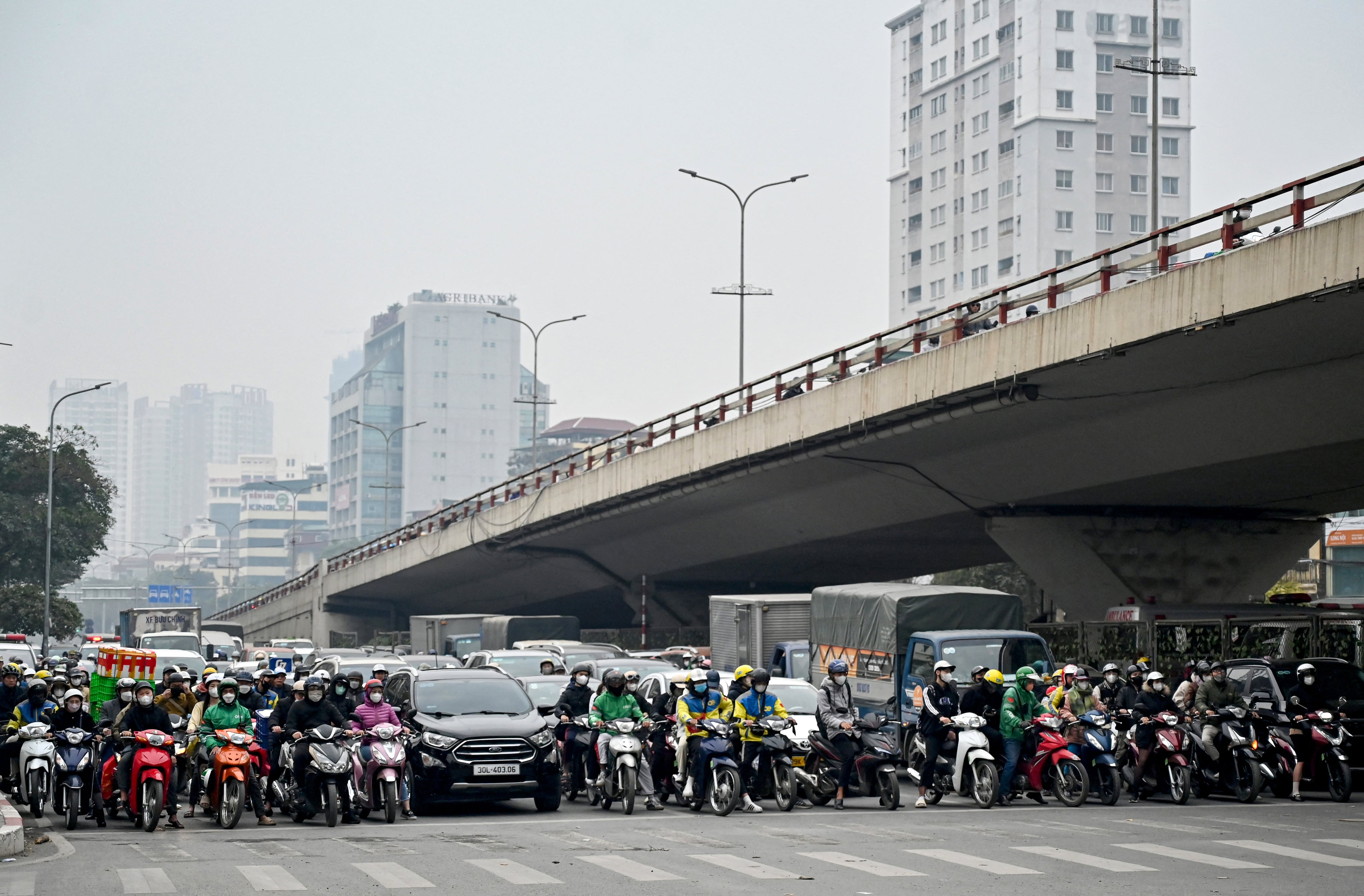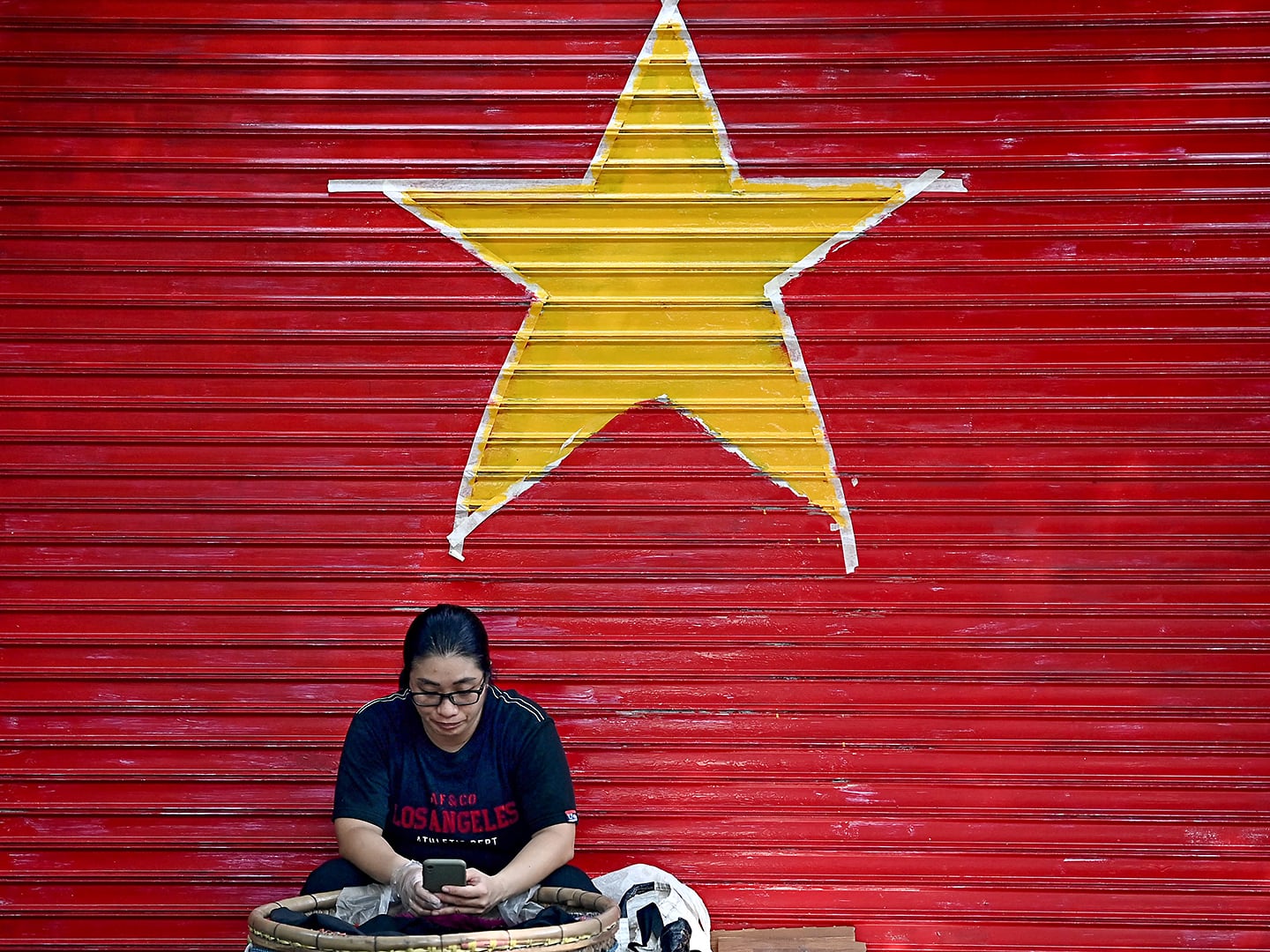Read about this topic in Vietnamese.
Images of deserted markets and shuttered shops are circulating across Vietnamese social media - not the result of a pandemic, but as the visible impact of a government policy.
In recent weeks, the Vietnamese government has rolled out a sweeping campaign to crack down on counterfeit goods and to enforce a new tax collection regime. The primary targets have been small businesses.
The prime minister issued a directive on May 24 urging all levels of government to “step up the fight against counterfeit goods.” The government also introduced Decree 70, requiring small businesses to install electronic cash registers connected directly to tax authorities.
The steps appeared sensible, to tighten up protections on intellectual property and move toward greater fairness in tax collection that could boost state revenues.
But there have been negative consequences as many shop owners have chosen to shut down their businesses rather than comply with the government’s measures.
Authorities across the country are launching surprise raids on small businesses to enforce the new regulations, targeting everything from social media-driven enterprises to household market vendors. Businesses which are unable to provide documentation proving the origin of their goods face penalties.
The abrupt and aggressive enforcement has sent shockwaves through the small business community, prompting a wave of mass closures as panicked shop owners shut their doors in protest or in fear.
“I will close my store, I cannot continue like this!” a sobbing store-owner in Ho Chi Minh City, Vietnam’s main commercial center, says in a self-filmed video where she talks about the effect of the new policies. The video, which shows dozens of shuttered businesses, was later posted on Facebook and has attracted more than 3 million views.
Local officials in the north-central province of Nghe An say that 80 percent of shops in the region’s largest market have shut down, highlighting the scale of the disruption.

Family-run businesses are a cornerstone of Vietnam’s economy, accounting for 39 percent of all jobs and contributing roughly a quarter of the country’s GDP, according to official government data.
The mass shutdown of household businesses is expected to take a significant toll on the economy, disrupting local employment and supply chains across the country.
While the campaign against counterfeit goods has instilled fear among small business owners, it is the enforcement of a new tax regime that is fueling the most resentment within the business community.
Under the old system, small businesses paid a fixed monthly amount known as presumptive tax, calculated by authorities based on the income reported by the business owners.
But that’s not the only burden they face. There are other ‘unofficial’ payments that are viewed as the cost of doing business in Vietnam, where corruption is deeply entrenched.
A grocery shop owner in Ho Chi Minh City told Radio Free Asia that every month he has to hand over an envelope with 2.5 million Vietnamese dong (or US$100) to local officials who run the market - and that’s even before he gets a visit from police.
“The police drop by from time to time—sometimes asking for a few hundred thousand (dong), sometimes taking things without paying, saying it’s a ‘donation from the shop.’ Whenever their agencies go on trips, training sessions, or attend congresses, they call and ask us to ‘contribute’," said the shop owner, who in common with other business people RFA spoke to for this article, requested anonymity for safety reasons.
A businesswoman operating in one of the major wholesale markets in the capital Hanoi told RFA that “tax evasion is a matter of survival” for many shop owners. Burdened by regular bribes to local officials, she said the only way to keep her store afloat and avoid raising prices is to skirt taxes.
In response to the wave of small business closures, state-run media have depicted shop owners as greedy and irresponsible, accusing them of choosing to shut down rather than fulfill their tax obligations. Those reports have largely ignored the underlying issue of chronic corruption.
“Before demanding transparency from small business owners, the government should first clean up its own house, starting with the local police,” the grocery shop owner in Ho Chi Minh City told RFA.
Translated and written by Truong Son. Edited by Mat Pennington.



